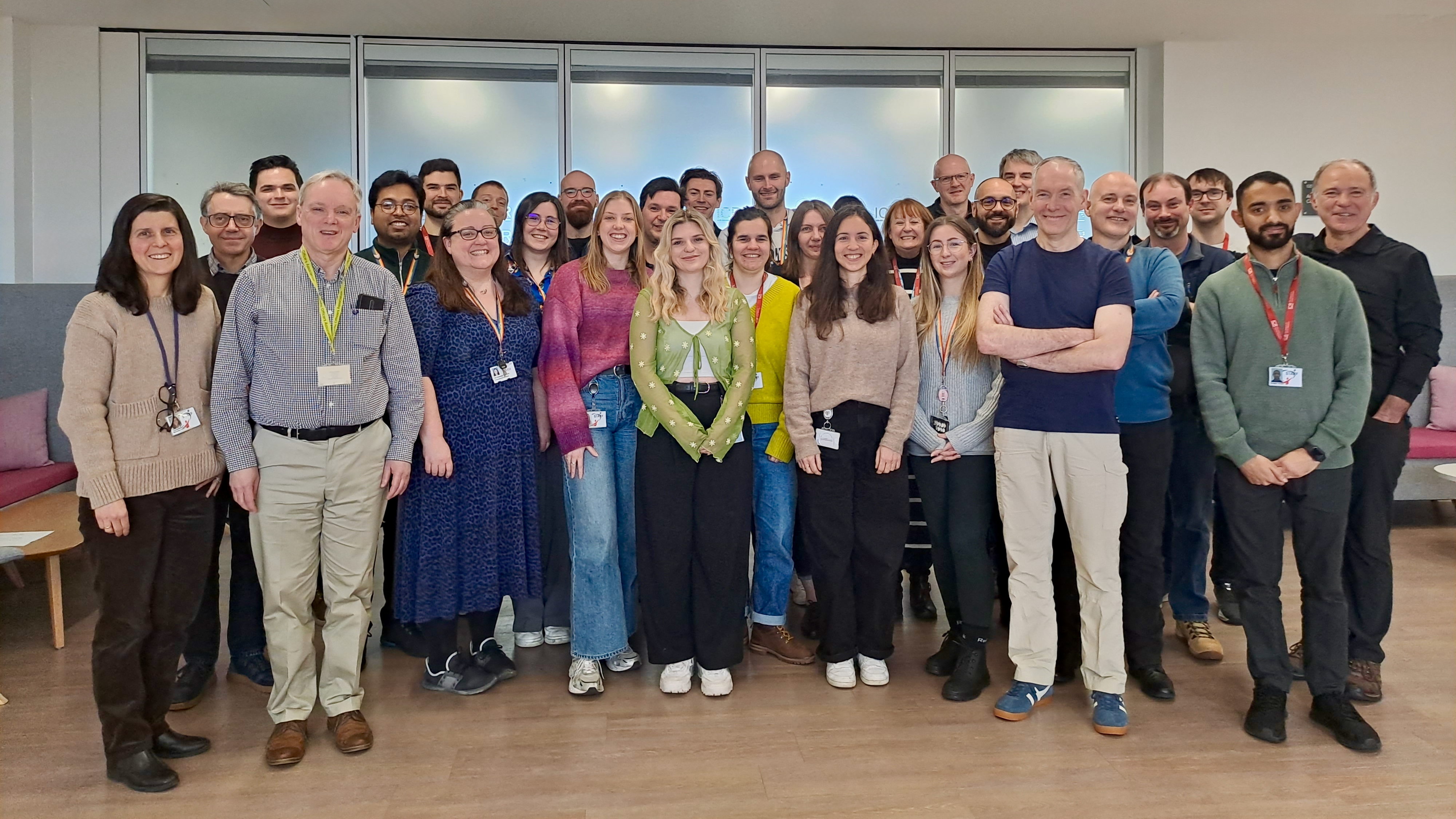
Image: Researchers from our Centre for Protein Degradation
The Institute of Cancer Research and biotechnology company NEOsphere Biotechnologies have announced a new collaboration to accelerate the discovery of molecular glue degrader drugs.
The collaboration will leverage the next-generation molecular glue library developed by the ICR’s Centre for Protein Degradation, and the state-of-the-art, integrated high-throughput proteomics platform at NEOsphere Biotechnologies.
The unprecedented data generated by this collaboration will not only produce high quality starting points for cancer drug discovery but will also help address one of the central challenges in the field: how to design and optimise molecular glue degraders more systematically and rationally, rather than relying solely on serendipity.
In a new article in Biopharma Dealmakers Professor Zoran Rankovic, Director of the Centre for Protein Degradation at the ICR, likens the change enabled by the new collaboration to a gold prospector who shifts from panning for gold – a laborious, time-intensive exercise – to putting on special goggles that allow them to see the gold nuggets more easily.
Molecular glues
In normal cells, proteins are constantly produced when they are needed, and degraded – shredded to pieces – when they complete their function. This protein recycling is a normal cellular process.
Large proteins called E3 ligases are key enzymes in this process, involved in marking proteins for degradation.
Small molecules that ‘glue’ together disease-causing proteins with E3 ligases, resulting in protein degradation, are generally referred to as molecular glue degraders (MGDs).
The molecular glues bind to and affect the surface of the E3 ligases, inducing interactions with disease-causing proteins. This leads to these proteins being marked and degraded via the normal cellular protein disposal system.
In contrast to inhibitors – small molecules designed to block the action of a protein of interest – MGDs do not need to bind to the target protein.
This means that molecular glues provide an unprecedented opportunity to go after currently undruggable therapeutic targets.
Molecular glue collaboration
The new collaboration builds on joint research between NEOsphere Biotechnologies and Professor Rankovic’s former group at St Jude’s Children’s Research Hospital in Tennessee, USA.
Results from that collaboration were published recently in the prestigious journal Nature Communications and underline the potential of proteomics in molecular glue discovery.
Proteomics is a critical technology widely used in MGD drug discovery. It enables the detection of proteins and the measurement of the effect that a small molecule may have on their levels in a cell.
For example, proteomics data from cells exposed to a MGD can show exactly which protein was degraded out of thousands detected in the cell.
The high-throughput proteomics platform developed by NEOsphere Biotechnologies is potentially transformative for MGD discovery, enabling testing thousands of small molecules and measuring their effect on proteins in cancer cells - helping to rapidly identify and characterise MGDs at unprecedented speed.
Novel MGD library
The Centre for Protein Degradation at the ICR, which was recently established following a major philanthropic donation, has used proprietary computational and structure-guided design methods to produce a novel molecular glue library currently containing more than 5,000 small molecules.
Some of the library has already been tested in NEOsphere Biotechnologies’ high-throughput proteomics platform, which has generated dozens of novel, potent and selective MGDs, and an unprecedented amount of high-quality data that is now being used to develop artificial intelligence and machine learning models for rational design and optimisation of molecular glue degraders.
Innovation in drug discovery
Targeted protein degradation is one of the most promising, innovative new approaches to emerge in drug discovery research in the past decade.
The ICR has been one of the pioneers and world-leading academic centres in applying this new approach at the Centre for Cancer Drug Discovery. For example, Monte Rosa Therapeutics, a leading molecular glue degrader biotech company, was originally a spinout from the ICR and recently made a deal with pharmaceutical company Novartis, which could be worth up to $5.7bn.
Professor Zoran Rankovic, Director of the Centre for Protein Degradation at the ICR, said:
“Our new collaboration is using high-throughput proteomics to rapidly assess proteome-wide effects of compound modifications, enabling faster iteration and more efficient refinement of promising molecular glue degrader drug candidates. It’s like moving from panning for gold to putting on goggles that let you to see the gold nuggets and pick them up easily.”
Professor Henrik Daub, CSO at NEOsphere Biotechnologies adds:
"We are delighted to partner with the ICR to systematically advance molecular glue degrader discovery. This collaboration demonstrates NEOsphere Biotechnologies’ commitment to translating integrated proteomics science into meaningful therapeutic impact for patients."
Dr Jonathan Beech, Business Development Manager at the ICR, said:
“We’re very pleased to announce this new collaboration with NEOSphere Biotechnologies, which will allow us to further accelerate our research to discover molecular glue degraders of novel cancer targets. It’s a great example of the kind of collaboration the ICR can make with biotech companies to develop innovative, early-stage collaborations in cutting-edge research areas.”
The Institute of Cancer Research has a strong track record of working with industry. Our skilled team has many decades of experience collaborating and contracting with commercial organisations.